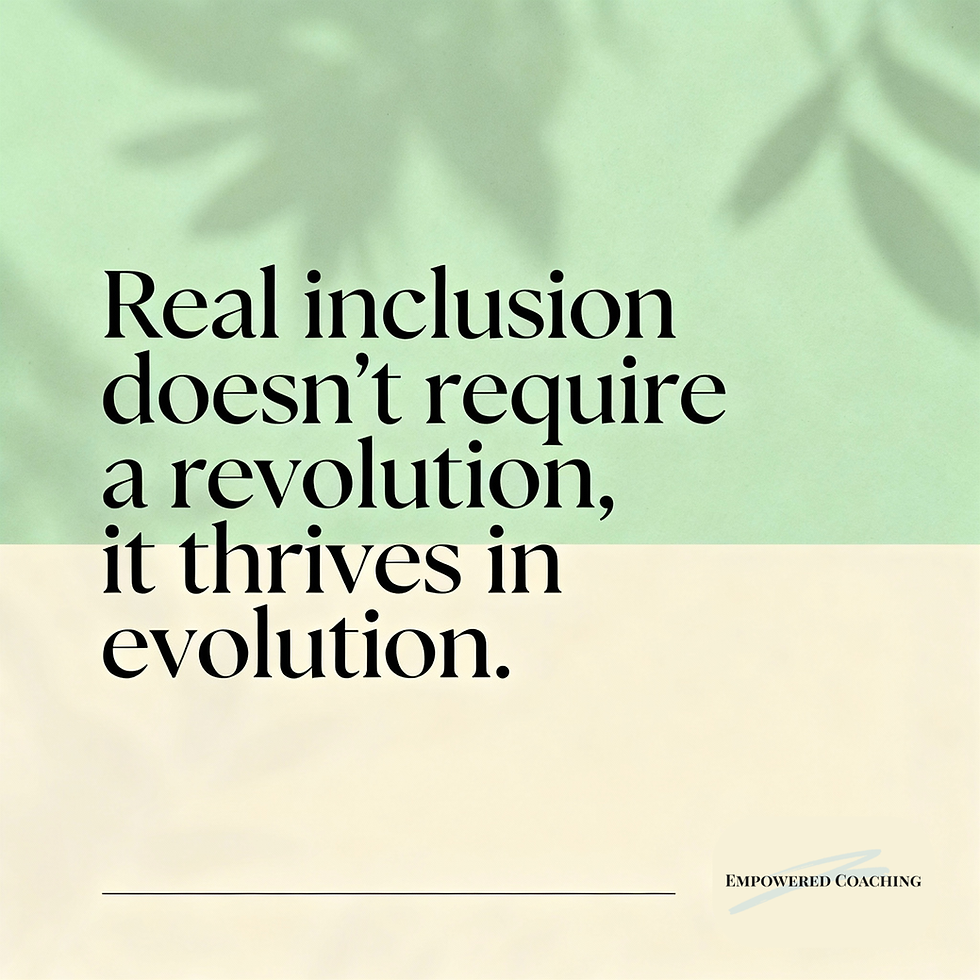Transform Your Life with Empowering Coaching Strategies
- emma83168
- Aug 3, 2025
- 4 min read
Empowering coaching methods have the potential to transform lives by unlocking hidden potential and fostering personal growth. These strategies focus on building confidence, enhancing self-awareness, and encouraging proactive decision-making. Whether you are seeking to improve your career, relationships, or overall well-being, adopting empowering coaching techniques can guide you toward meaningful change.
Exploring Empowering Coaching Methods
Empowering coaching methods are designed to help individuals take control of their lives by developing skills and mindsets that promote independence and resilience. These methods often involve active listening, powerful questioning, and goal-setting to inspire clients to discover their own solutions.
Some practical empowering coaching methods include:
Active Listening: Truly hearing what the client says without judgment encourages openness and trust.
Goal Clarity: Helping clients define clear, achievable goals provides direction and motivation.
Strength-Based Approach: Focusing on strengths rather than weaknesses builds confidence.
Accountability: Encouraging clients to take responsibility for their actions fosters commitment.
Visualization Techniques: Guiding clients to imagine success can boost motivation and focus.
For example, a coach might ask, "What strengths have helped you overcome challenges before?" This question shifts the focus to positive experiences and empowers the client to apply those strengths to current situations.

What is Empowerment in Coaching?
Empowerment in coaching refers to the process of enabling individuals to gain control over their own lives. It involves fostering self-confidence, encouraging autonomy, and supporting clients in making informed decisions. Empowerment is not about giving advice or solutions but about facilitating clients' discovery of their own answers.
Key elements of empowerment in coaching include:
Building Self-Awareness: Helping clients understand their values, beliefs, and behaviours.
Encouraging Self-Efficacy: Supporting clients to believe in their ability to achieve goals.
Promoting Responsibility: Guiding clients to take ownership of their choices.
Creating a Safe Space: Establishing trust so clients feel comfortable exploring challenges.
For instance, a coach might use reflective questions such as, "What options do you see for yourself in this situation?" This encourages clients to think critically and take charge of their path forward.

Practical Steps to Implement Empowering Coaching Strategies
Implementing empowering coaching strategies requires intentional practice and a client-centred approach. Here are actionable recommendations to apply these methods effectively:
Establish Trust Early: Begin by creating a non-judgmental environment where clients feel safe to share openly.
Use Open-Ended Questions: Encourage deeper reflection with questions like, "What does success look like for you?"
Focus on Strengths: Identify and build upon the client’s existing skills and achievements.
Set SMART Goals: Help clients create Specific, Measurable, Achievable, Relevant, and Time-bound goals.
Encourage Reflection: Regularly ask clients to reflect on their progress and lessons learned.
Celebrate Successes: Acknowledge milestones to boost motivation and reinforce positive behaviour.
Promote Accountability: Support clients in taking responsibility for their actions and follow-through.
By following these steps, coaches can foster a sense of empowerment that leads to sustainable personal growth.

The Role of Mindset in Empowering Coaching
A growth mindset is fundamental to empowering coaching. It is the belief that abilities and intelligence can be developed through effort and learning. Coaches who cultivate a growth mindset in their clients help them embrace challenges and view setbacks as opportunities for growth.
To nurture a growth mindset:
Encourage Learning from Failure: Help clients see mistakes as valuable lessons.
Promote Positive Self-Talk: Replace limiting beliefs with affirmations.
Set Incremental Challenges: Gradually increase difficulty to build confidence.
Model Resilience: Share stories of perseverance and success.
For example, a coach might say, "What did you learn from this experience that will help you next time?" This question shifts focus from failure to growth.
How Coaching Empowerment Can Change Your Life
Integrating coaching empowerment into your personal development journey can lead to profound changes. Empowered individuals tend to have higher self-esteem, better decision-making skills, and greater resilience in the face of adversity.
Benefits of coaching empowerment include:
Increased Clarity: Understanding your goals and values more clearly.
Enhanced Motivation: Feeling driven to take action toward your dreams.
Improved Relationships: Communicating more effectively and setting healthy boundaries.
Greater Emotional Intelligence: Managing emotions and stress with confidence.
Sustained Personal Growth: Developing habits that support continuous improvement.
By embracing empowering coaching methods, you can unlock your potential and create a fulfilling, purpose-driven life.
Taking the First Step Toward Empowerment
Starting your journey with empowering coaching methods begins with a commitment to self-discovery and growth. Consider seeking a professional coach who specialises in empowerment techniques or explore self-coaching tools and resources.
Here are some tips to get started:
Identify Areas for Growth: Reflect on where you want to improve or change.
Set Intentions: Define what empowerment means to you personally.
Seek Support: Find a coach or community that aligns with your goals.
Practice Regularly: Use coaching exercises and journaling to deepen self-awareness.
Be Patient: Remember that transformation takes time and consistent effort.
Taking these steps will set you on a path toward a more empowered and fulfilling life.
Empowering coaching methods offer a powerful framework for transformation. By focusing on strengths, fostering autonomy, and encouraging growth, these strategies help individuals unlock their full potential. Whether you are new to coaching or looking to deepen your practice, embracing empowerment can lead to lasting positive change.



Comments